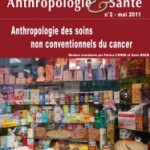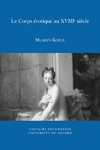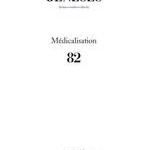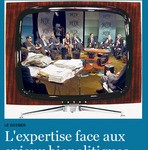Appel à contribution – Corps de parents, corps d’enfants. De la conception à l’éducation
Corps de parents, corps d’enfants. De la conception à l’éducation
Septième symposium international de CORPUS
« Corps de parents, corps d’enfants. De la conception à l’éducation » sera le thème du Septième symposium international de CORPUS Groupe international d’études culturelles sur le corps. Cette rencontre organisée avec l’Université de médecine et de pharmacie Victor Babeş de Timişoara aura lieu les 28 et 29 novembre 2011.
Timişoara, November 28th-29th 2011
CORPUS
International Group for the Cultural StudY of the Body & University of Medicine and Pharmacy Victor Babeş TIMIȘOARA
CALL FOR PAPERS
Founded in 2009 after a series of seminars organised between 2001 and 2008 at the EHESS (Paris) and the Autonomous University of Madrid, CORPUS aims at being an effective participant in building a widely diverse and scientifically-based dialogue on the anthropological aspects of the body. As a cross-thinking forum, CORPUS now brings together more than four hundred researchers from over sixty-five different countries.
The themes of the preceding symposia were « The Beautiful and the Ugly: Body Representations » (Lisbon, January 2010), « Foreign Bodies: Enhancing & Invading the Human Body » (Moscow, May 2010) and « Bodies & Folklore(s): Legacies, Constructions and Performances » (Lima, October 2010), « Diets and Food Patterns: Myths, Realities and Hopes » (Tbilisi, July 2011), « Devoted Bodies or Great Shows? Making Profit on Sacred Areas » (Munster, September 2011) and « Genders, Cultures and Citizenships » (San Cristóbal de las Casas, November 2011).
The theme of the seventh International Symposium of CORPUS organised with the support of the University of Medicine and Pharmacy “Victor Babeş” Timişoara (Romania) is « Parents’ Bodies, Children’s Bodies. From Conception to Education ».
In all societies, biological reproduction is regulated by cultural frameworks. Additional cultural processes (adoption, surrogate mother system, etc.) have a deep impact on parents and children, whose sentimental and educational relationships presuppose complex bodily interactions. Each society defines conception, childbirth, neonatal nursing, first basic learning and other parenting practices as complex bio-cultural phenomena in accordance with its world views, material culture, and ecosystem. Possible aspects include: ancient, traditional, popular or biomedical knowledge about procreation, pregnancy or child growth, types of physical socialization and education, initiation rituals, conceptions about child’s body integrity, representations of physical punishment, etc.
Across cultures, the mother, the father and the child frequently become symbolic figures. In classical Western thought, for instance, the mother represents the most important archetypal symbol, the tender incarnations of the Virgin, the church, the university and the home, etc. The father is the reasoning agent, the embodiment of traditional values, the patriarch and master of the house, but also an economic actor and a major consumer. For his part, the child is a symbol of innocence and hope.
We invite researchers interested in the body in medical, familial, educational, symbolical and ritual contexts (archaeologists, anthropologists, historians, physicians, psychologists, sociologists, art specialists, etc.) to participate in this symposium considering particularly, but not strictly, the following themes:
Parenthood and processes from conception to childbirth: knowledge and beliefs on procreation and pregnancy; techniques of the body involved in procreation and delivery; societal and artistic representations of pregnant women; etc.
Child’s, Mother’s (and Father’s) bodies during the first years of the new-born life: health, nutritional needs, breast feeding, first contacts, social re-insertion/integration, etc.
Initial stages of body awareness: incorporation of techniques, assimilation of sensorial sensibilities, play, physical education, etc.
Representations of parents’ and children’s bodies: their images and application in arts, political, philosophical or religious discourses; parents’ or children’s self-representation, etc.
Presentations will be 20 minutes long and should be delivered preferably in English. However, proposals in Romanian and French will also be considered. The proposals must include an abstract (150-300 words) and a current CV.
The deadline for receiving presentations is September 1, 2011.
Please use the address below to send your proposal to Frédéric Duhart and Gabriela-Marianna Luca. All proposals will be evaluated by an international scientific committee. The symposium will be held November 28th-29th 2011 at the University of Medicine and Pharmacy “Victor Babeş” Timişoara. Transportation, visa, travel insurance costs and accommodation will be the sole responsibility of each participant.
Contacts:
Frédéric Duhart, CORPUS General Coordinator, frederic.duhart@wanadoo.fr
Gabriela-Marianna Luca, 7th Symposium Coordinator, luca.gabriela@gmail.com
Scientific Committee
Lenuta Giukin, State University of New York
Andrei Kozma, Academic Association of Anthropology
Dan Nemes, University of Medicine and Pharmacy “Victor Babeş” Timişoara
Rodica Ieta, State University of New York
Andrei Motoc, University of Medicine and Pharmacy “Victor Babeş” Timişoara
Jérôme Thomas, Paul Valery University, Montpellier
Contact
Frédéric Duhart
courriel : frederic [point] duhart (at) wanadoo [point] fr
 Anthropologie et santé – Anthropologie des soins non conventionnels du cancer, 2/2011.
Anthropologie et santé – Anthropologie des soins non conventionnels du cancer, 2/2011.


